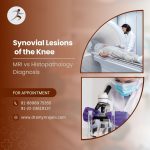Knee Replacement Surgery: Brief Overview
Knee joint replacement surgery, also known as knee arthroplasty, involves replacing a damaged and non-functioning knee joint with an artificially designed prosthesis. Total knee joint surgery involves replacing the entire knee joint, whereas partial knee replacement surgery in Mumbai involves replacing only a single condyle (anatomical unit of the knee joint) which is damaged.
Most surgeons use minimally invasive techniques to perform knee arthroplasty nowadays. A small skin incision is used to access the damaged knee joint and to carefully separate it from surrounding muscles and soft tissue. The artificial prosthesis is then fit in place and surgically connected with the muscles, nerves, tendons and ligaments. While the surgery itself may last for about 3 hours, it takes up to a month for complete recovery of the patient.
Post-Surgery Precautions:
Patients who have recently undergone knee replacement surgery are advised to follow some restrictions to allow easy and complete recovery.
- Avoid Weight Bearing
Your unicondylar knee replacement specialist in Mumbai will strongly recommend against activities like lifting and carrying heavy weights, standing for a long period of time or running. These activities may burden the artificial knee prosthesis, which may be unable to function normally.
- Avoid Postural Discomfort
Avoid remaining in one posture for your long time, as this may cause stiffness of the operated knee joint. Even while sleeping, avoid positions which put pressure upon your operated knee.
- Rest
Take adequate rest to make sure you don’t overburden your operated knee. Your doctor may advise you to use a walking stick or crutches to avoid burdening your knee while walking.
Post-Surgery Treatment:
Successful completion of knee replacement surgery does not imply complete recovery. The newly operated knee requires some more treatment to regain normal strength and functioning.
- Physiotherapy and Exercise
Almost all patients who undergo knee replacement surgery have to attend mandatory physiotherapy sessions. Patients are taught exercises to strengthen their leg muscles and improve knee joint mobility. Physiotherapists may employ means like electrotherapy, heat therapy etc. to improve mobility of the operated knee joint.
- Medication
An operated knee joint will show signs of inflammation for a few hours after surgery. The knee is stiff and cannot be moved without experiencing pain. Patients are prescribed anti-inflammatory medicines to reduce the swelling and pain of the knee. Antibiotics are also part of the post-surgery treatment, to avoid injection in or around the newly operated knee joint.
All types of knee joint complaints do not require intervention in the form of knee replacement surgery. But it is inadvisable to neglect knee joint complaints, even though it may seem minor in nature. Consult with the top orthopedic surgeon in Lilavati hospital Mumbai if you are experiencing recurrent knee joint discomfort.



